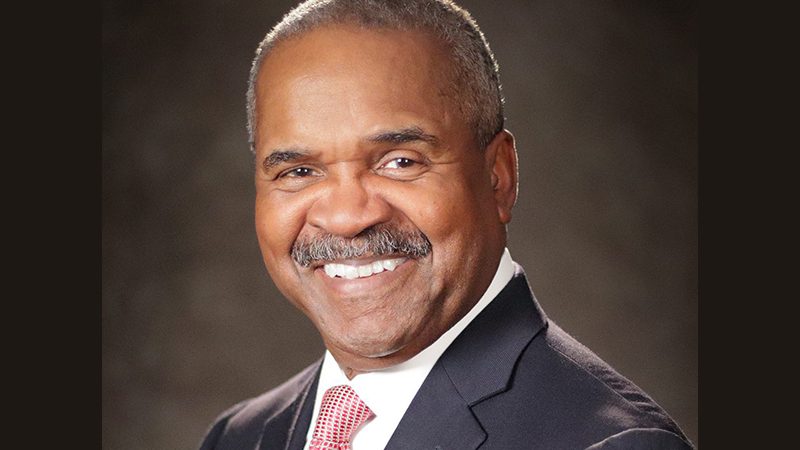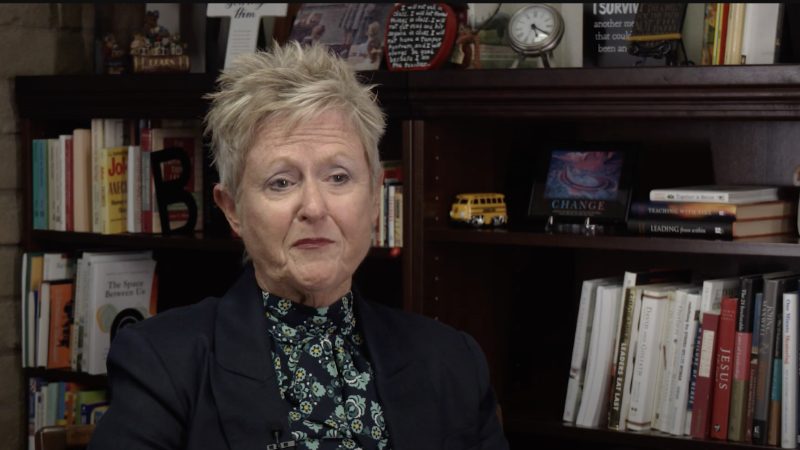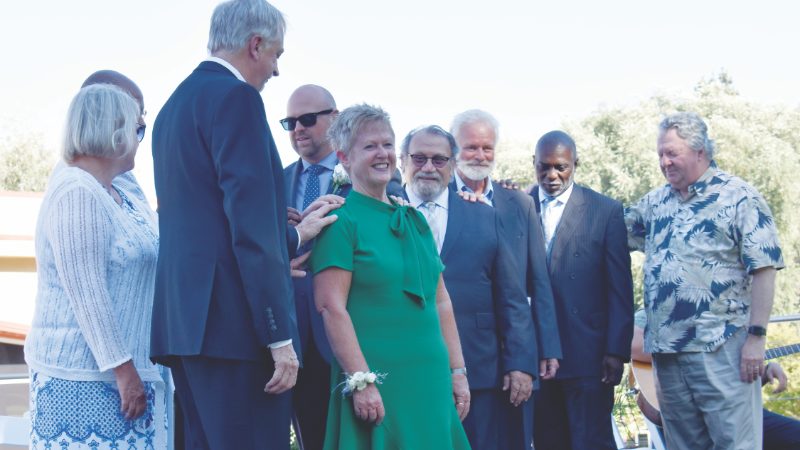According to a United Press International article published in 1973, the “uglies” picketed an American Airlines ticket office in Fort Worth, Texas, to protest alleged discrimination in hiring when the company advertised for good-looking people.
Danny McCrory, the founder of Uglies Unlimited, led the protest with 18 uglies from his organization, which was formed to fight biased social structures that discriminate against ugly people.
“We just want to be accepted for who we are instead of what we look like,” said McCrory. He had talked to employment agencies who said it was much easier to place attractive persons. He felt the problem was most flagrant in newspapers want ads that said such things as “Wanted attractive receptionist” or “Pretty secretary needed.”1
McCrory said the Fort Worth Uglies was the first group of its kind in the country. He had started it to promote the rights of ugly people and spread its message across the nation.
However, there is no standard definition of ugliness—it’s a relative term. To some people, irregular features, discolored skin, or a large nose qualify. Others consider such conditions as obesity and baldness unattractive. The complaints of the protesters did not get them very far.2
Although we are not accepted by all the people all the time, there are a few saints who accept us regardless of whether we are good looking or ugly. There are some who are able to see the potential in us.
The greatest motivating power you can discover is your remembered debt of gratitude to these good people. If you disabuse yourself of any ideas of your own self-sufficiency and your own capability of making it to the top of the heap, you will become an instrument of divine power through kindness, love, and faith.
As long as we persist in trying to make it to the top alone by pushing others aside and asserting ourselves, we diminish our stature. It is the unforgotten debt that we owe to others that gives us the power to create, lead, live fully, and be our true selves.
The Apostle Paul never forgot the debt that he owed to other people. Chiefly, there were three persons who helped him develop his spiritual life.
First, Ananias, a layman who made pottery in Damascus, was sent by the Holy Spirit to give him back his sight and to restore his serenity.
Second, a woman named Priscilla opened the way for him in Greece when the itinerant Paul went there but had no “foot in the door.” This professional woman, a dealer in fine fabrics, opened her home and her social clientele to give credence to this new convert, Saul, who was now known as Paul.
And third, and most important: Barnabas.
Barnabas came from the island of Cyprus and lived on the periphery of the disciples of Jesus. He was a large, rotund man with a majestic head; in fact, when he was besieged by a crowd on one of his mission trips, they thought he looked like their idea of the Greek god Zeus (Acts 14:11-12).
Barnabas was a good man, and his goodness expressed itself in his actions. The first thing reported of him is an act of great generosity. After the resurrection, things were difficult for the disciples, and they were poverty-stricken and of necessity frugal. Barnabas went back to Cyprus, sold his farm, and brought the income to support the Christian community led by the apostles (Acts 4:36-37). Jesus said that one kind of goodness was to help the hungry, the naked, the prisoners, and the sick. Barnabas had that kind of goodness.
He had the insight to discern between the genuine and the insincere. When the young church was afraid of Saul, “Barnabas took him and brought him to the apostles. He told them how Saul on his journey had seen the Lord and that the Lord had spoken to him” (Acts 9:27, NIV). Barnabas was not influenced by gossip or public opinion. When he saw that Paul was genuine, he decided to stand by him whether it was popular or not.
Here was a large-framed man with a large mind and a generous heart who was content to play second fiddle. When Saul was first converted, he was rebuffed by the apostles. But Barnabas put his arm around him and said, “Brother Saul, I stand with you.” After that Paul was in.
Who plays the role of Barnabas in your life? I can name a dozen men and women who have played the role of Barnabas in my life. It is an unforgotten debt.
It is the unforgotten debt that we owe to others that gives us the power to create, lead, live fully, and be our true selves.
An even more important question exists: Whose Barnabas are you? If you can’t think of anyone, then your life is not complete.
If you want to be a leader, or if you want to be an instrument of God, write down the name of some person who stands alone today—questioned, scorned, unsure, and anxious. Then write: “I am your Barnabas.”
It won’t be easy to do. You will have to take criticism and bear the scorn that goes with loyalty. But there is a chance that you will set a character free who may influence the whole of civilization, as Paul did.
Barnabas was never famous, but there would have been no Apostle Paul if there had been no Barnabas. Barnabas wasn’t actually his name—his name was Joseph. He was so stout, strong, warm-hearted, and outgoing, they gave him the nickname Barnabas, which means “Son of Encouragement.”

To whom are you the son or daughter of encouragement? Who can you prevent from slipping into the abyss by the helpful actions of your personality? This is the age of narcissism. “What’s in it for me?” But there is more to life than that.
Jesus persuaded Barnabas that he who seeks to save his life will lose it and he who seeks to give his life away in abundance will receive it back as an overflowing spring of eternal spirit. This promise is available to all men and women to give to others.
When the church in Jerusalem wanted a thorough report of the work that was being done in Antioch, it was Barnabas they sent. Barnabas, free from jealousy and self-seeking, could give an unbiased report. The work of God was always first with Barnabas.
A good man can never be a yes-man, so Barnabas was willing to take a stand against Paul and support John Mark in their disagreement (Acts 15:36-41). Barnabas was right and Paul was wrong, for Barnabas saved Mark when Paul would have abandoned him. Barnabas stood for loyalty to the right at any cost.
Barnabas was never glad when others went wrong. He was gladdened by the goodness. He was always eager to believe the best about everybody. No man is truly good who is not in sympathy with others, who does not have a largehearted tolerance for their weaknesses and a passionate interest in their welfare.
I think of all the men and women who have accepted me, influenced me, and loved me. I think with gratitude of the men and women who have sometimes taken the opposite view in criticisms. They also have enriched my life. I identify at this stage in life with Paul and Barnabas, who encouraged each other.
Every one of us have a Barnabas, an Ananias, or a Priscilla in their lives. My hope is that you will acknowledge that. If you do, it will let loose a motivating flood within your heart and cause you to become a Barnabas or a Priscilla for someone else. It will liberate the kindness in you. It will make you realize that you touch everybody’s life for better or worse. When you affect them for the better, you release their personalities and set them free.
It is in the depths of life that Barnabas stands with you. It is in the depths of doubt that Priscilla reassures you. It is in the depths of despair that Ananias comes with love and acceptance to say, “Brother Saul, the Lord…has sent me so that you may see again and be filled with the Holy Spirit” (Acts 9:17, NIV).
_____________________________
Alberto Valenzuela is associate director of communication and community engagement of the Pacific Union Conference and the Recorder editor.
Una deuda de amor
Por Alberto Valenzuela
Según un artículo de United Press International publicado en 1973, los «feos» hicieron un piquete en una taquilla de American Airlines en Fort Worth, Texas, para protestar por la supuesta discriminación en la contratación cuando la empresa solicitaba personas bien parecidas.
Danny McCrory, fundador de Uglies Unlimited, encabezó la protesta con 18 feos de su organización, que se formó para luchar contra las estructuras sociales sesgadas que discriminan a las personas feas.
«Solo queremos ser aceptados por lo que somos en lugar de por lo que parecemos», dijo McCrory. Había hablado con agencias de empleo que le decían que era mucho más fácil colocar a personas atractivas. Sentía que el problema era más flagrante en los anuncios de los periódicos que decían cosas como «Se busca recepcionista atractiva» o «Se necesita secretaria bonita».1
McCrory dijo que los Fort Worth Uglies fueron el primer grupo de su tipo en el país. Lo había iniciado para promover los derechos de las personas feas y difundir su mensaje por toda la nación.
Sin embargo, no existe una definición estándar de fealdad, es un término relativo. Para algunas personas, los rasgos irregulares, la piel descolorida o una nariz grande califican. Otros consideran que condiciones como la obesidad y la calvicie son poco atractivas. Las quejas de los manifestantes no les llevaron muy lejos.2
Aunque no somos aceptados por todas las personas todo el tiempo, hay algunos que nos aceptan sin importar si somos atractivos o feos. Hay algunos que son capaces de ver el potencial que hay en nosotros.
El mayor poder motivador que puedes descubrir es tu recordada deuda de gratitud hacia esas buenas personas. Si te desengañas de cualquier idea de tu propia autosuficiencia y de tu propia capacidad de llegar a la cima del montón, te convertirás en un instrumento del poder divino a través de la bondad, el amor y la fe.
Mientras persistamos en tratar de llegar a la cima solos, apartando a los demás y afirmándonos, disminuimos nuestra estatura. Es la deuda no olvidada que tenemos con los demás la que nos da el poder de crear, liderar, vivir plenamente y ser nosotros mismos.
El apóstol Pablo nunca olvidó la deuda que tenía con otras personas. Principalmente, hubo tres personas que lo ayudaron a desarrollar su vida espiritual.
Primero, Ananías, un laico que fabricaba cerámica en Damasco, fue enviado por el Espíritu Santo para devolverle la vista y la serenidad.
En segundo lugar, una mujer llamada Priscila le abrió el camino en Grecia cuando el itinerante Pablo fue ahí pero no tenía «un pie en la puerta». Esa mujer profesional, comerciante de telas finas, abrió su casa y su clientela social para dar crédito a ese nuevo converso, Saulo, que ahora era conocido como Pablo.
Y tercero, y el más importante: Bernabé.
Bernabé procedía de la isla de Chipre y vivía en la periferia de los discípulos de Jesús. Era un hombre grande y rechoncho con una cabeza majestuosa; de hecho, cuando fue asediado por una multitud en uno de sus viajes misioneros, pensaron que se parecía a su idea del dios griego Zeus (Hechos 14:11-12).
Bernabé era un buen hombre y su bondad se expresaba en sus acciones. Lo primero que se sabe de él es un acto de gran generosidad. Después de la resurrección, las cosas eran difíciles para los discípulos, y estaban sumidos en la pobreza y la necesidad. Bernabé regresó a Chipre, vendió su granja y trajo los ingresos para apoyar a la comunidad cristiana liderada por los apóstoles (Hechos 4:36-37). Jesús dijo que un tipo de bondad era ayudar al hambriento, al desnudo, al prisionero y al enfermo. Bernabé tenía ese tipo de bondad.
Tenía la perspicacia para discernir entre lo genuino y lo insincero. Cuando la joven iglesia tuvo temor de Saulo, «Bernabé lo tomó y lo llevó a los apóstoles. Les contó que Saulo, en su camino, había visto al Señor, y que el Señor le había hablado» (Hechos 9:27). Bernabé no se dejó influenciar por los chismes ni por la opinión pública. Cuando vio que Saulo era genuino, decidió estar a su lado, fuew3 popular o no.
Ahí estaba un hombre de complexión grande, con una mente amplia y un corazón generoso, que se contentaba con tocar el segundo violín. Cuando Saulo se convirtió por primera vez, fue rechazado por los apóstoles. Pero Bernabé lo rodeó con su brazo y le dijo: «Hermano Saulo, yo estoy contigo». Después de eso, Pablo era uno más entre los creyentes.
¿Quién desempeña el papel de Bernabé en tu vida? Puedo nombrar a una docena de hombres y mujeres que han desempeñado el papel de Bernabé en mi vida. Es una deuda que no se olvida.
Existe una pregunta aún más importante: ¿De quién eres Bernabé? Si no puedes pensar en nadie, entonces tu vida no está completa.
Si quieres ser un líder, o si quieres ser un instrumento de Dios, escribe el nombre de alguna persona que esté sola, es cuestionada, despreciada, insegura y ansiosa. Escribe después: «Soy tu Bernabé».

No será fácil. Tendrás que aceptar las críticas y soportar el desprecio que acompaña a la lealtad. Pero existe la posibilidad de que liberes a alguien que puede influir en toda la civilización, como lo hizo Pablo.
Bernabé nunca fue famoso, pero no habría habido el apóstol Pablo si no hubiera existido Bernabé. Bernabé no era en realidad su nombre, su nombre era José. Era tan robusto, formido, afectuoso y extrovertido que le dieron el apodo de Bernabé, que significa «Hijo del Aliento».
¿De quién eres tú el hijo o la hija de la consolación? ¿A quién puedes evitar que caiga en el abismo por las acciones útiles de tu personalidad? Esta es la era del narcisismo —¿cómo me beneficia?— pero hay más en la vida que eso.
Jesús persuadió a Bernabé de que el que procure salvar su vida la perderá y el que procure dar su vida en abundancia la recibirá de vuelta como un manantial rebosante de espíritu eterno. Esa promesa está al alcance de todos los hombres y mujeres para dársela a los demás.
Cuando la iglesia en Jerusalén quiso un informe completo de la obra que se estaba llevando a cabo en Antioquía, fue a Bernabé a quien enviaron. Bernabé, libre de celos y egoismo podía dar un informe imparcial. La obra de Dios siempre fue lo primero para Bernabé.
Un hombre bueno nunca puede ser un hombre que siempre dice sí, por lo que Bernabé estuvo dispuesto a tomar una posición en contra de Pablo y apoyar a Juan Marcos en su desacuerdo (Hechos 15:36-41). Bernabé tenía razón y Pablo estaba equivocado, porque Bernabé salvó a Marcos cuando Pablo lo habría abandonado. Bernabé representó la lealtad a lo correcto a cualquier precio.
Bernabé nunca se alegraba cuando otros se equivocaban. Se alegraba de la bondad. Siempre estaba dispuesto a creer lo mejor de todos. Ningún hombre es verdaderamente bueno si no simpatiza con los demás, si no tiene una tolerancia de gran corazón hacia sus debilidades y un interés apasionado en su bienestar.
Pienso en todos los hombres y mujeres que me han aceptado, me han influenciado y me han amado. Pienso con gratitud en los hombres y mujeres que a veces han tenido el punto de vista opuesto a las críticas. También han enriquecido mi vida. Me identifico en esa etapa de la vida con Pablo y Bernabé, que se animaban mutuamente.
Cada uno de nosotros tiene un Bernabé, un Ananías o una Priscila en sus vidas. Espero que lo reconozcas. Si lo haces, desatará una inundación motivadora dentro de tu corazón y hará que te conviertas en un Bernabé o en una Priscila para otra persona. Liberará la bondad que hay en ti. Te hará darte cuenta de que tocas la vida de todos para bien o para mal. Cuando los afectas para bien, liberas sus personalidades y los liberas.
Es en las profundidades de la vida donde Bernabé está contigo. Es en las profundidades de la duda donde Priscilla te tranquiliza. Es en las profundidades de la desesperación que Ananías viene con amor y aceptación a decir: «Hermano Saulo, el Señor... me ha enviado para que vuelvas a ver y seas lleno del Espíritu Santo» (Hechos 9:17).
_____________________________
Alberto Valenzuela es director asociado de comunicación y participación comunitaria de la Pacific Union Conference y editor del Recorder.






